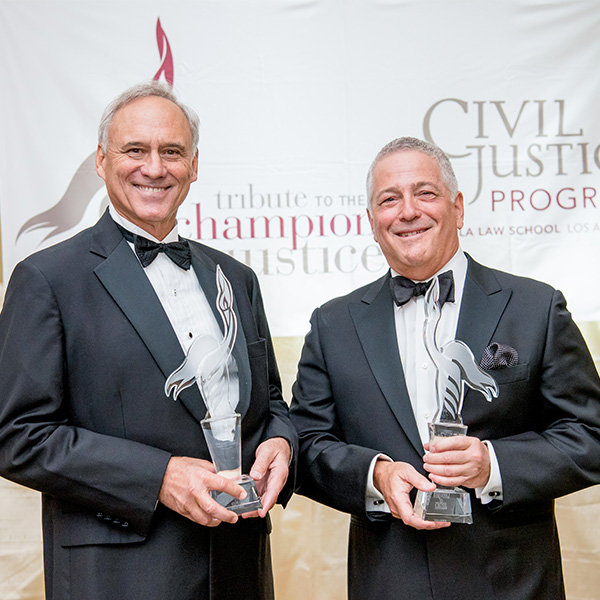
Loyola Law School created the Civil Justice Program to focus research and public attention on the civil justice system. As a technologically advanced, teaching and research institution located in the most diverse city in the world, Loyola is ideally situated to sponsor this program.
The Civil Justice Program convenes periodic conferences, seminars and presentations; promotes and publishes scholarly research; and initiates cross disciplinary projects.
The civil justice system in the United States is the primary mechanism by which persons who've been harmed by others can seek compensation for their injuries. It is also the primary means by which, in setting rules and permitting recoveries in civil lawsuits, the public through the jury system evaluates and checks institutional and business practices that affect public safety.
The civil justice system has come under increasing attack from many sides. Some business and insurance groups contend juries find liability too readily or award excessive damages to sympathetic plaintiffs. Many members of the public believe that to obtain compensation for injuries takes too long, and requires enormous effort both to find a competent lawyer to bring suit, and to withstand pressures brought by powerful institutions. Others fear that civil litigation has become the playground of powerful lawyers jousting over tangential points, and running up costs, while victims go uncompensated and defendants pay their lawyers to delay just compensation.
With these considerations in mind, the Civil Justice Program seeks to achieve three objectives:
- Research: To research and support scholarship on the civil justice system in the United States.
- Public Education: To develop and distribute materials to help the public both understand the civil justice system and to critique it knowledgeably.
- Equal Access to Civil Justice: To explore the extent to which all members of the public have equal access to the civil justice system, and particularly to examine and critique any limitations that race, gender, status or class play in enforcing claims through the civil justice system.
To Achieve These Objectives, the CJP will:
- Convene periodic conferences, seminars and presentations on the civil justice system, and make materials accessible to the public.
- Promote and publish scholarly research by scholars, lawyers and knowledgeable nonlawyers regarding the operations of the civil justice system.
- Initiate cross disciplinary projects at universities, advocacy organizations and think tanks with the goal of both describing the operations of the civil justice system and proposing desirable changes.